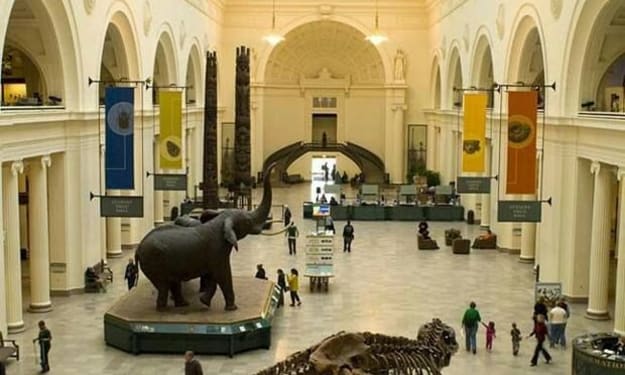
General Concepts About God
The idea of God and his role in the universe has been discussed by philosophers, theologians, religious leaders, and ordinary people throughout history. Generally speaking, most religions view God as a benevolent being with an infinite capacity for love and understanding.
He is seen as having both absolute power (omnipotence) and absolute knowledge (omniscience). He is credited with creating the universe, watching over mankind, and intervening in our lives when necessary. Most religions teach that God is incorruptible, eternal, and immutable—meaning he does not change or evolve
.Existence of God
The debate over the existence of God has been raging for centuries, as people from all walks of life try to answer this timeless question. Some believe that God can be scientifically proven while others argue that He is an esoteric concept that lies beyond the grasp of science. Whether or not one believes in His existence, it is undeniable that the idea of a divine being has been present since the dawn of time.
(2) Attributes of God:
The attributes of God have been explored by many different religions, with each having its unique perspective on who or what He is. Generally speaking, most religions describe Him as an all-powerful and all-knowing being that created the universe and watches over mankind.
Benevolence
It is also an attribute of God, as He is seen as a being who has an infinite capacity for love and mercy.
Omniscience and Omnipotence
God is believed to have both absolute knowledge (omniscience) and absolute power (omnipotence). This means that He knows all and has the power to intervene in human affairs, either directly through miracles or indirectly through the laws of nature. His omniscience and omnipotence allow Him to be present in all places, at all times, and to have ultimate control of the universe.
Creator
God is believed to have created the universe and all that it contains. He is seen as the ultimate source of all good, justice, love, and mercy.
Oneness
God is also often viewed as a being who is unified and complete, with no divisions or contradictions. He is seen to be one, indivisible entity that transcends all boundaries of race and culture.
Infinity
Finally, God is seen as an infinite being whose power and knowledge surpass human comprehension. He is said to be beyond time and space, transcending all limitations of the natural world.
Ultimately, God is an elusive concept that carries a different meaning for each individual. Regardless of religious beliefs, however, He remains an integral part of human existence; His presence is known in both obvious and subtle ways.
Through Him, we can find strength when negative thoughts try to undermine us, as well as grace and understanding when our emotions seem out of control. In whatever definition one may choose for Him, God is an inexorable part of human existence; His presence is known in both obvious and subtle ways.
The belief of Ancient Cultures about God
The concept of God has been around since the dawn of time and can be found in virtually every culture throughout history. In ancient cultures, the idea of a divine being was often intertwined with nature.
For example, many ancient religions would worship the sun or moon as deities that provided vital nourishment for their crops and livestock. Similarly, some cultures viewed certain animals and plants as sacred, believing them to be representatives of God or the gods
Typ)
Introduction
General Concepts About God
(1) Existence of God
(2) Attributes of God:
Benevolence
Omniscience and Omnipotence
Creator
Oneness
Infinity
The belief of Ancient Cultures about God
Concept of Monotheism and Polytheism
FAQ
What is
What doe
Wh
What
Wha
Ess
Intro
The
Concept of Monotheism and Polytheism
FAQs
E
Introduction
The concept of God is not a new one, it has been around for thousands and thousands of years. The idea of a divine being or higher power has been present in almost every culture and religion in some form or another since the dawn of time.
God is often viewed as an all-encompassing, omniscient being who created the universe and has the power to intervene in human affairs, either directly through miracles or indirectly through the laws of nature. He is believed to be the ultimate source of all good, justice, love, and mercy.
God is often described as having an infinite number of attributes such as omnipotence (all-powerful) and omniscience (all-knowing). In simplest terms, God is the one true divine power that exists within all of creation. He is the source of love and the ultimate contributor to our journeys throughout life.
While it isn’t easy to adequately define who or what God is, He has been described as a loving and compassionate spiritual being by countless civilizations throughout history. Through Him, we can find strength when negative thoughts try to undermine us, as well as grace and understanding when our emotions seem out of control.
In whatever definition one may choose for Him, God is an inexorable part of human existence; His presence known in both obvious and subtle ways
General Concepts About God
The idea of God and his role in the universe has been discussed by philosophers, theologians, religious leaders, and ordinary people throughout history. Generally speaking, most religions view God as a benevolent being with an infinite capacity for love and understanding.
He is seen as having both absolute power (omnipotence) and absolute knowledge (omniscience). He is credited with creating the universe, watching over mankind, and intervening in our lives when necessary. Most religions teach that God is incorruptible, eternal, and immutable—meaning he does not change or evolve.
(1) Existence of God
The debate over the existence of God has been raging for centuries, as people from all walks of life try to answer this timeless question. Some believe that God can be scientifically proven while others argue that He is an esoteric concept that lies beyond the grasp of science. Whether or not one believes in His existence, it is undeniable that the idea of a divine being has been present since the dawn of time.
(2) Attributes of God:
The attributes of God have been explored by many different religions, with each having its unique perspective on who or what He is. Generally speaking, most religions describe Him as an all-powerful and all-knowing being that created the universe and watches over mankind.
Benevolence
It is also an attribute of God, as He is seen as a being who has an infinite capacity for love and mercy.
Omniscience and Omnipotence
God is believed to have both absolute knowledge (omniscience) and absolute power (omnipotence). This means that He knows all and has the power to intervene in human affairs, either directly through miracles or indirectly through the laws of nature. His omniscience and omnipotence allow Him to be present in all places, at all times, and to have ultimate control of the universe.
Creator
God is believed to have created the universe and all that it contains. He is seen as the ultimate source of all good, justice, love, and mercy.
Oneness
God is also often viewed as a being who is unified and complete, with no divisions or contradictions. He is seen to be one, indivisible entity that transcends all boundaries of race and culture.
Infinity
Finally, God is seen as an infinite being whose power and knowledge surpass human comprehension. He is said to be beyond time and space, transcending all limitations of the natural world.
Ultimately, God is an elusive concept that carries a different meaning for each individual. Regardless of religious beliefs, however, He remains an integral part of human existence; His presence is known in both obvious and subtle ways.
Through Him, we can find strength when negative thoughts try to undermine us, as well as grace and understanding when our emotions seem out of control. In whatever definition one may choose for Him, God is an inexorable part of human existence; His presence is known in both obvious and subtle ways.
The belief of Ancient Cultures about God
The concept of God has been around since the dawn of time and can be found in virtually every culture throughout history. In ancient cultures, the idea of a divine being was often intertwined with nature.
For example, many ancient religions would worship the sun or moon as deities that provided vital nourishment for their crops and livestock. Similarly, some cultures viewed certain animals and plants as sacred, believing them to be representatives of God or the gods.
In addition to nature-based religions, many ancient cultures also worshiped multiple deities; each having a unique identity and purpose. This polytheistic approach to religion was popular in many parts of the world, particularly in the Middle East and India.
The belief in a higher power was also common among the ancient Greeks, Romans, and Egyptians. In these cultures, gods were often seen as symbols of strength and wisdom; possessing superhuman abilities that allowed them to control nature.
These days, many people still believe in some form of deity, although the definition and understanding of God have changed dramatically over time. While the concept of a higher power is still present in our society, its definition has become less concrete and more subjective.
Regardless of any individual’s religious beliefs, it is impossible to deny the fact that God has been an integral part of human existence since the dawn of time. His presence can be seen throughout history and remains a source of hope and comfort for many people.
God is a concept that has shaped human culture over the centuries and continues to be an important part of our lives today. He remains an enigma, yet His presence is felt in both large and small ways; from providing solace in times of despair to guiding us when we feel lost or overwhelmed.
God is an ultimate source of comfort and strength to many and serves as a reminder that we are not alone in our struggles. He is always there, waiting to provide hope when all else fails. No matter what form God takes in your life, His power and love remain indomitable; a lasting testament to the human spirit.
This is the belief of God in ancient cultures. With time, the concept of God has changed and evolved but his presence remains in our lives today. He is a source of comfort, strength, and solace, guiding us when we need it most.
Concept of Monotheism and Polytheism
The concept of God has been at the center of human thought since the dawn of time. In many ancient cultures, religious beliefs were based on polytheism—a belief in multiple gods or goddesses. As civilizations grew, however, they began to move away from polytheistic religions and toward monotheism—the belief in a single all-powerful god.
Monotheistic beliefs have been particularly popular in the Western world, with Christianity and Judaism being two of the most prominent examples. These religions not only place emphasis on one supreme being but also provide a moral code for followers to adhere to; this code often includes rules about how to treat others and how to live life according to one’s beliefs.
On the other hand, some cultures continue to embrace polytheism and believe in multiple gods or goddesses. These religions often have multiple deities who each serve a specific purpose or represent certain attributes. For example, many Hindu sects worship multiple gods such as Shiva, Vishnu, and Brahma; each of these gods is believed to have different powers and qualities.
Thank you...............👍
About the Creator
Enjoyed the story? Support the Creator.
Subscribe for free to receive all their stories in your feed. You could also pledge your support or give them a one-off tip, letting them know you appreciate their work.





Comments
There are no comments for this story
Be the first to respond and start the conversation.